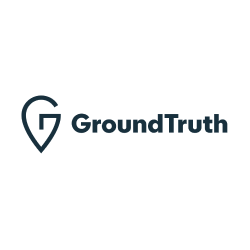Dive Brief:
- TripleLift, a programmatic platform focused on native advertising, agreed to sell a majority interest to Vista Equity Partners, the private-equity firm that has invested in a number of marketing-related companies, included Mediaocean and Integral Ad Science. Terms of the deal weren't disclosed in an announcement, but the transaction was valued at more than $1.4 billion, Ad Age reported, citing people familiar with the matter.
- With Vista's backing, TripleLift plans to expand its business in programmatic video and connected TV (CTV), along with a bigger geographic push into Europe and Asia. TripleLift's business has grown more than 70% a year since 2015, and it handled more than 40 trillion ad transactions on desktop, mobile and CTV last year, per an announcement.
- The TripleLift deal comes as mergers and acquisitions activity picks up in the marketing space, including strategic investments by corporations in ad-tech companies. TripleLift expects the deal to close in the second quarter of this year, per its announcement.
Dive Insight:
TripleLift's sale to Vista Equity Partners for a reported $1.4 billion is notable not only for the size of the transaction, but also what it means for TripleLift's independence amid the current wave of consolidation in the ad-tech industry. Deal activity is picking up as the global economy continues to recover from the pandemic recession, driving a rebound in ad spend.
However, ad-tech companies also face the uncertainties of stricter data-privacy laws and the move by technology giants like Google and Apple to give consumers more control over how they share personal information online. It's still too early to tell how the limitations on online audience tracking will affect the ability of marketers to retarget consumers with advertising, but the media, marketing and ad-tech industries are preparing for that eventuality.
TripleLift works with more than 80% of the top 100 publishers measured by ComScore, all of the top 20 demand side platforms (DSPs) and every advertiser in Ad Age's top 100 ranking. Eric Berry will stay as chief executive of TripleLift, and serve on its board. True Ventures and Edison Partners, two early investors in TripleLift, also will remain invested in the company, according to its announcement.
"TripleLift is a next generation ad tech company that has successfully identified and developed multiple new markets since its inception," Michael Fosnaugh, co-head of the Vista Flagship Fund and senior managing director, said in the announcement. "In each case, they have created unique value to an entire ecosystem of companies, including brands, publishers, and partners."
Some companies in the ad-tech industry are merging to build greater scale or to round out their capabilities. Magnite, the sell-side platform formed last year in the wake of the Rubicon Project-Telaria merger, last month bought rival SpotX for $1.17 billion in cash and stock from RTL Group. The same month, data connectivity platform LiveRamp completed its deal to buy DataFleets, a cloud platform that lets businesses protect their proprietary data, for $68 million, according to a quarterly filing. In addition, programmatic platform District M merged with ad exchange Sharethrough to expand their omnichannel scale, according to an announcement. Brand performance ad platform Verge Group acquired Nexstar's digital video ad-tech platform, formerly known as LKQD, for an undisclosed sum in January.
In addition to these mergers, consumer-facing marketers are making strategic acquisitions of ad-tech companies to improve their in-house capabilities around marketing, advertising and e-commerce. Yum Brands, the owner of KFC, Taco Bell and Pizza Hut, this month bought the artificial intelligence (AI) business of performance marketing firm Kvantum in to "scale and fast-track" its data strategy. To expand its fledgling retail media network, Walmart acquired the technology and IP behind Thunder, an ad-tech solution focused on creative automation. Sportswear giant Nike last month bought data integration platform Datalogue to scale its data-driven processes. These deals indicate that M&A activity is likely to continue as brands build out their first-party data about consumers to hone their marketing activities.












